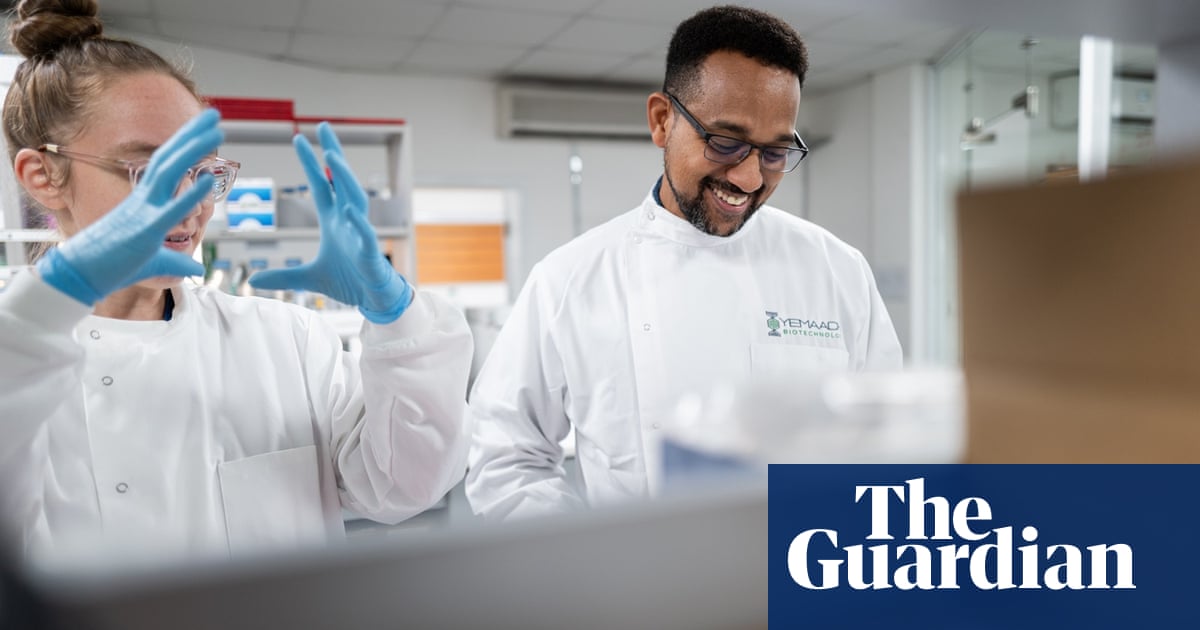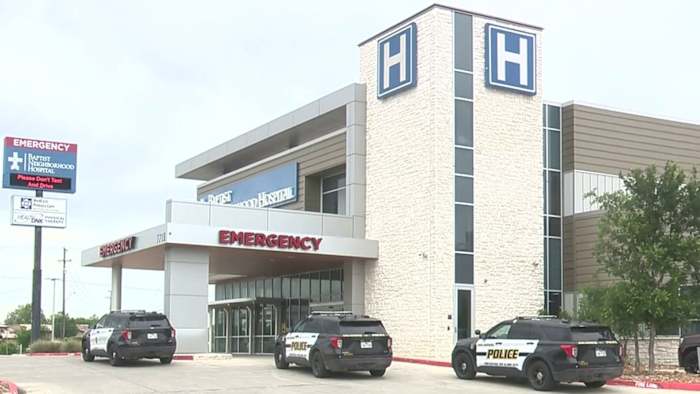Ghana-Based Biotech Aims too Revolutionize Cancer Treatment wiht Africa’s First Genetic Database
Table of Contents
- 1. Ghana-Based Biotech Aims too Revolutionize Cancer Treatment wiht Africa’s First Genetic Database
- 2. How will the African cancer Atlas contribute to the development of more effective cancer treatments for populations of African descent?
- 3. Yemaachi Biotech’s African Cancer Atlas: Revolutionizing Cancer Treatment through Genomic diversity
- 4. Addressing a Critical Gap in cancer Research
- 5. Unveiling Genomic Diversity for Better Cancer Treatment
- 6. Navigating Challenges and Ethical Considerations
- 7. The Future of Cancer Treatment
Accra, Ghana – A Ghanaian biotech company is spearheading an ambitious effort to combat cancer on the African continent and beyond, by building the first complete database of African genetic and clinical cancer information. Yemaachi Biotech, co-founded in 2020 by Yaw bediako, aims to address a critical gap in global cancer research and treatment, fueled by a personal tragedy and a glaring disparity in genomic data.
Bediako’s initiative stems from the loss of his father to cancer fifteen years prior. He realized the staggering impact of the disease in Africa, where limited research and resources contribute to grim statistics.”I realized that cancer is this huge disease in Africa that doesn’t really get much research attention,” he explains. “But it’s not just an African problem, it’s global … It stands out as a problem that does not distinguish between geographies or socioeconomic class.”
The African Cancer Atlas, as the database will be known, aims to collect genetic and clinical information from up to 7,500 cancer patients across Africa. This data will provide invaluable insights into cancer within African populations, facilitating drug discovery, treatment research, and ultimately, a reduction in cancer outcome disparities. The Atlas will be freely accessible to African researchers.Already, the project has garnered significant support, including funding and technical backing from Swiss pharmaceutical giant Roche, announced in February 2024.
this project also encompasses data on childhood cancers. Alarming statistics reveal that an “estimated 85% of paediatric cancers occur in low- and middle-income countries (LMICs)” while survival rates lag significantly behind those in high-income nations. The survival rate for children with cancer in lmics is approximately 30%, compared to 80% in high-income countries.
The urgency of this initiative is underscored by the severe underrepresentation of African genomes in global research.”Less then 2% of human genomes analyzed so far have been those of Africans,” despite the continent housing 17% of the world’s population and possessing the greatest genetic diversity. This lack of portrayal hinders a comprehensive understanding of cancer and its treatment, notably for those of African descent, globally.
Dr. Patrick Kafui Akakpo, a pathologist in Ghana with a specialization in breast cancer, confirms the critical need for this research. He notes that Ghanaian women, for example, are particularly susceptible to triple-negative breast cancer, an aggressive and difficult-to-treat form of the disease.
“We are aware that the African genome is not as well-studied as the European one,” Akakpo states. “We have very few clinical trials going on and most of them are in infectious diseases and not cancer. It means that we don’t have the experience or data to support the efficacy of drugs in our people.”
Bediako emphasizes what he believes are structural inequalities as partial reasoning for the lack of funding in cancer genomics. “The field of human ancestry is rife with racism and with discrimination,” he says.”You cannot overlook those as possible reasons why certain groups have been understudied.”
Due to this lack of data in non-European populations, Bediako says certain drugs have been developed that are not as effective for all people. “You can find Europeans whose genomes will have certain traits that are more common in Africans,” he points out.”So by being more inclusive in the genomes we study, we will have the opportunity to develop solutions.”
The potential benefits of this research extend far beyond Africa. By incorporating a more diverse set of genomes, researchers can develop more effective and targeted therapies for individuals of all ethnicities.
Big pharmaceutical companies have started taking notice of this discrepancy, with companies such as GSK and Novartis announcing the collaboration to explore the links between genetic diversity and “African patients’ response to malaria and tuberculosis drugs.” additionally “four pharma companies donated $20m (£15m) to sequence 500,000 African and African American genomes” in 2023.
Yemaachi is currently funded by a mix of investors, grants, and philanthropy. Bediako hopes to increasingly rely on commercial partnerships to sustain the company’s work. However, he acknowledges the ethical considerations involved in perhaps profiting from patient data.
Aida Manu, yemaachi’s director of operations, explains, “We realize we have to do something. It’s very complex. The participants are vulnerable becuase they have an illness we are interested in and many are vulnerable economically.It’s still early days but we make it clear we are looking to find a way to have this community benefit from the research coming out.”
David Hutchful, a co-founder and the company’s chief technology officer, revealed that convincing foreign investors can be challenging. “We call it the Africa tax, or the black tax,” he explains. “It’s not overt but it comes through when investors ask certain questions which sometimes show they have little working knowledge of Africa.” He mentioned that questions such as “whether ther’s enough electricity to power the freezers for samples,” have been brought up.
Despite these hurdles, the Yemaachi team remains optimistic. Bediako states that along with the science and work, he hopes to “portray the Africa I know now exists, that I love and want to contribute to.” He concludes, “My dream is one day there will be drugs used to treat cancer around the world that will be derived from knowledge that was generated from this continent – and that shows Africa has something to offer the world.”
How will the African cancer Atlas contribute to the development of more effective cancer treatments for populations of African descent?
Yemaachi Biotech’s African Cancer Atlas: Revolutionizing Cancer Treatment through Genomic diversity
Archyde spoke with Yaw Bediako,co-founder of Yemaachi Biotech,to discuss their groundbreaking initiative to create the frist complete African genetic and clinical cancer database,the African Cancer atlas. This project aims to revolutionize cancer treatment by addressing the critical underrepresentation of African genomes in global research.
Addressing a Critical Gap in cancer Research
Archyde: Mr. Bediako, thank you for speaking with us. Can you start by explaining the core mission of Yemaachi Biotech and the African Cancer Atlas project?
Yaw Bediako: Thank you for having me. Yemaachi Biotech was founded with a very simple but ambitious goal: to improve cancer outcomes for Africans and, by extension, the world. The African Cancer Atlas is the cornerstone of this mission. It is indeed a database collecting detailed genetic and clinical information from African cancer patients, designed to fill the massive knowledge gap on cancer within African populations.
Archyde: Your personal experience clearly fuels this project. Can you elaborate on what led you to launch this initiative?
Yaw Bediako: My father’s battle with cancer was a defining experience. Witnessing the challenges faced by him and the scarcity of resources reinforced my understanding of the staggering impact of cancer in Africa. The global disparity in genomic data was also glaring. It made me realise that our continent was not getting the research attention it deserved and was leading to poor outcomes for those affected.
Unveiling Genomic Diversity for Better Cancer Treatment
Archyde: The statistics highlighting the underrepresentation of African genomes are astounding. Why is this lack of data so critical, and how will the African Cancer Atlas address it?
Yaw Bediako: Currently, less than 2% of all human genomes are from Africans, despite the continent holding the greatest genetic diversity. This means that treatments developed globally are often not as effective for populations of African descent. Our Atlas will provide much-needed data, facilitating more targeted drug discovery and treatment research, thereby reducing disparities. We want to improve treatment options globally.
Archyde: we understand this project also includes data on childhood cancers. Survival rate of the disease is substantially lower in Africa than in high income countries. Can you tell me a little bit more about this area of study?
Yaw Bediako: Yes. The survival rate for children with cancer is shockingly low in many african countries, hovering around 30% compared to a high of 80% in some high-income nations.This is due to limited access to care, late diagnoses, and lack of cancer-specific treatments. An emphasis on childhood cancers is therefore key to improving survival rates in Africa.
Archyde: The project has received backing from big players like Roche. How is this supporting the project?
Yaw Bediako: Partnerships like the one with Roche are critical. They provide funding, technical expertise, and access to state of the art technology, allowing us to accelerate our research and expand our collection efforts. Collaboration is really key when we’re approaching a project of this magnitude.
Navigating Challenges and Ethical Considerations
Archyde: As a Ghanaian company spearheading this project, what are some of the particular challenges you’ve encountered, especially when it comes to funding and investor perception?
Yaw Bediako: Attracting investment certainly comes with its challenges. What David hutchful,our CTO,calls the “Africa tax”—the unspoken skepticism some investors have—is frequently enough present. Some of these questions range from being relevant to others that are very basic questions. Overcoming these hurdles requires that we demonstrate our expertise. The team strives to be clear about our mission and the potential of the project.
Archyde: The ethics of using patient data are a key concern. How is Yemaachi addressing this?
Yaw Bediako: Ethical considerations drive our work. aida Manu, our Director of Operations, is dedicated to ensuring our participants benefit from the research, recognizing their economic vulnerability.We are committed to a transparent process, making it clear that this is for the benefit of the communities we are working with.
The Future of Cancer Treatment
Archyde: This is truly a groundbreaking project. What is your vision for Yemaachi Biotech and the impact the African cancer Atlas will have on the future of healthcare globally?
Yaw Bediako: My hope is ambitious but simple: that one day, there will be drugs used worldwide to treat cancer that are derived from knowledge generated here in africa. That would be a powerful statement about what the continent can offer the world. We are not just building databases here; we are charting a course toward a more equitable and effective future for cancer treatment for all.
Archyde: Thank you very much, Mr. Bediako, for sharing your valuable insights with us. It’s clear that Yemaachi Biotech and the African Cancer Atlas are poised to make transformative changes.
Archyde: To our readers; What do you think about the importance of this initiative? Share your thoughts in the comments below!


:format(webp)/nginx/o/2025/04/26/16800069t1hb3da.jpg)





